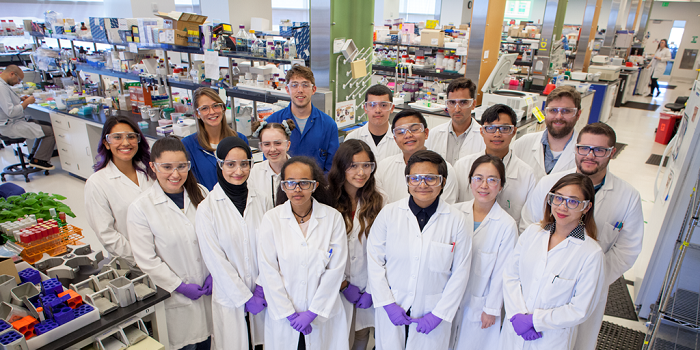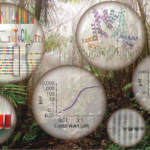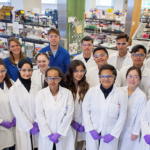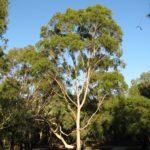Sugarcane produces 80 percent of the world’s sugar, which is of interest to bioenergy researchers who want to develop sustainable alternative fuels. Improving sugarcane breeding methods using molecular biology techniques has been hampered by the crop’s highly polyploid genome, which makes sequencing and assembly of the genome extremely challenging. As part of a proposal by JBEI, the JGI was part of an international team led by researchers from the French Agricultural Research Centre for International Development (CIRAD), who worked on sequencing and assembling fragments of sugarcane chromosomes into the first monoploid reference of the gene-rich part of the sugarcane genome. Reported in Nature Communications, their approach relied in part on having a sequence for sugarcane’s relative sorghum, a JGI Plant Flagship Genome sequence, and knowing that there was a high level of colinearity between the two crops, which meant most genes in sorghum occurred roughly in the same order in sugarcane. Learn more on the JGI website.
All Aboard the Jungle Express!
In the quest to find the key to a rainforest-dwelling bacterium’s lignin-degrading ability, researchers at the Joint BioEnergy Institute (JBEI) have constructed a gene expression system that outperforms conventional systems, called Jungle Express. Controlling gene expression is crucial to scientists’ ability to perform basic science and biotechnological research to produce enzymes, bio-based products, and biofuels, both at the bench and on industrial scales. Read the Science Short on the Berkeley Lab News Center.
Another Great Year for the Biotech Partners at the Biosciences Area
 This past Saturday, August 11, seven Biotech Partners high school students who interned at the Biosciences Area participated at the Biotech Partners end of summer celebration and poster competition. Four of the seven Biosciences interns made it to the finalists round of the poster competition. Mitzy Rubio from the Biological Systems and Engineering (BSE) Division received an honorable mention for “Most Creative Poster” and Raven Young from the Joint Genome Institute (JGI) received an honorable mention for “Best Oral Presentation”.
This past Saturday, August 11, seven Biotech Partners high school students who interned at the Biosciences Area participated at the Biotech Partners end of summer celebration and poster competition. Four of the seven Biosciences interns made it to the finalists round of the poster competition. Mitzy Rubio from the Biological Systems and Engineering (BSE) Division received an honorable mention for “Most Creative Poster” and Raven Young from the Joint Genome Institute (JGI) received an honorable mention for “Best Oral Presentation”.
iCLEM Cohort Concludes Summer Research at JBEI
 The Introductory College Level Experience in Microbiology (iCLEM), the Joint BioEnergy Institute’s flagship outreach program, concluded last week with a celebration which included a students’ presentation and a poster presentation by the teachers who assisted the program. Photos of the celebration are available online. Check out also the Twitter campaign in which the students shared highlights of their summer experience at JBEI.
The Introductory College Level Experience in Microbiology (iCLEM), the Joint BioEnergy Institute’s flagship outreach program, concluded last week with a celebration which included a students’ presentation and a poster presentation by the teachers who assisted the program. Photos of the celebration are available online. Check out also the Twitter campaign in which the students shared highlights of their summer experience at JBEI.
JGI Finds Terpene Synthase Gene Family Conserved in Eucalypts
Terpenes play key roles in plant growth, defense, and environmental interactions. Terpenes are also economically important because of their use in industrial materials, pharmaceutical products, and as biofuel precursors. Collectively, hundreds of terpene compounds have been characterized from eucalypts, a group of 900 tree species belonging to the Myrtaceae (myrtle) family and containing the closely-related genera Angophora, Corymbia and Eucalyptus. As part of a proposal by the DOE’s Joint BioEnergy Institute (JBEI), the JGI worked on resequencing several eucalypt genomes to establish the feasibility of genome wide association studies for genetic traits that are desirable from a biofuels production perspective. By using genomic database alignment tools, researchers searched for TPS genes in the eucalypt Corymbia citriodora. Learn more on the JGI website.
- « Previous Page
- 1
- …
- 17
- 18
- 19
- 20
- 21
- …
- 37
- Next Page »
Was this page useful?








